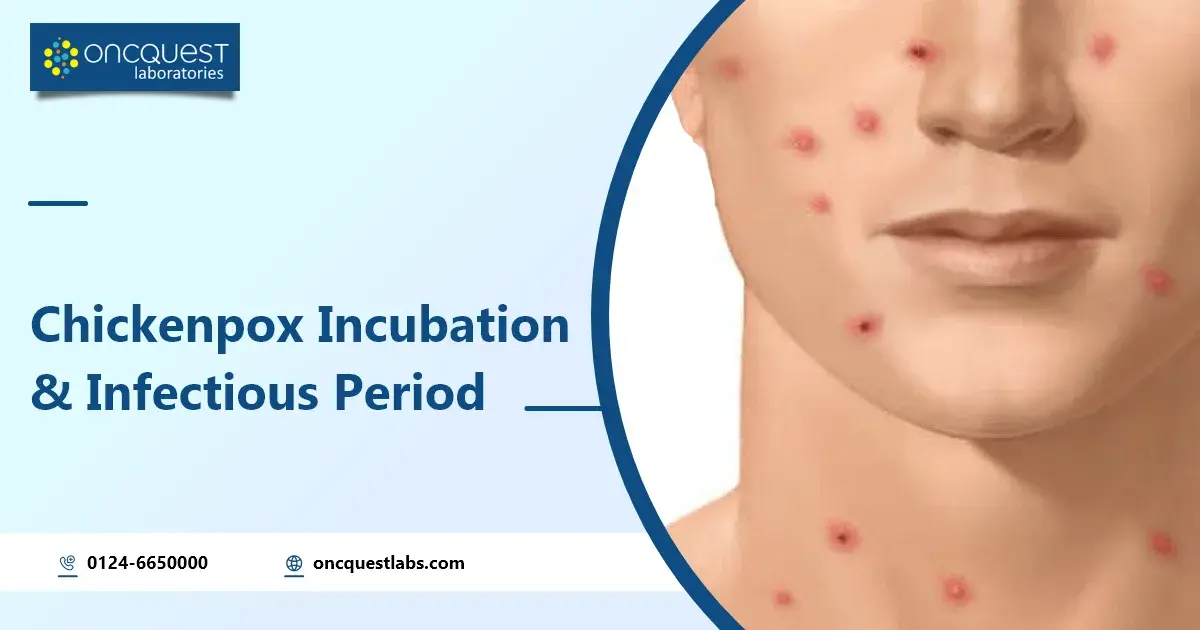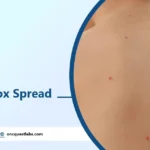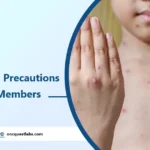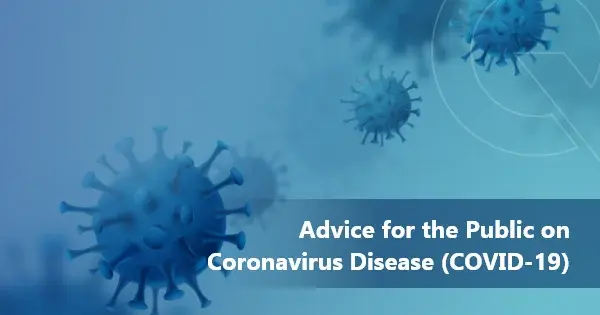Chickenpox can easily spread, especially among kids, causing big outbreaks. Parents should know how it spreads to protect their children. It’s a very catchy virus called varicella-zoster. It spreads through coughs, sneezes, and touching the blisters’ fluid. Getting the varicella vaccine helps a lot. It’s part of regular shots for kids and makes chickenpox less likely and not as bad if they get it.
Also, remind kids to wash hands a lot and not share personal things. This stops the virus from spreading. Parents who know about chickenpox and take these steps keep their kids healthy during outbreaks.
Contents
What is the incubation period for chickenpox?
Chickenpox is a sickness caused by a virus called Varicella. Grown-ups can get shingles from the same virus. When someone has chickenpox, they might have a mild fever and a rash with red spots. These spots can turn into clear or cloudy blisters and then scabs.
Chickenpox happens more often in colder months like winter. It’s a bit like measles, where outbreaks happen in cycles.
After catching the virus, it takes about 2 to 3 weeks to get sick. People can spread it usually 1 to 5 days after the rash starts. If someone’s immune system is weak, they might spread it longer. If one person in a house gets chickenpox, others might get it too.
People with shingles can also spread the virus, usually for about a week after their rash appears. It takes about 10 to 21 days after being near someone with chickenpox for a person to get sick.
How is chickenpox transmitted?
Chickenpox spreads when someone with it touches another person or the things they use. It can also spread through the air when someone coughs or sneezes.
People with chickenpox can spread it before their rash shows up and until their blisters heal. If someone hasn’t had chickenpox before and touches a sick person, they might catch it too.
Is chickenpox dangerous?
Chickenpox can be bad if not treated fast:
1. Blisters can get infected and make scars.
2. Germs from the blisters can get in the blood and cause a big infection called sepsis.
3. It can lead to serious problems like pneumonia, brain swelling (encephalitis), and brain inflammation (cerebellar inflammation).
4. Later, the virus can come back as shingles, which causes painful rashes.
5. Pregnant women should be careful because chickenpox can hurt the baby, causing problems like miscarriage, birth defects, or infections at birth.
How to prevent chickenpox?
Getting the chickenpox vaccine is a good way to stay safe for a long time. The vaccine helps your body make special fighters called antibodies that fight the chickenpox virus. Most people who get the vaccine (about 90%) never get chickenpox. Even if they do, it’s not as bad, with fewer blisters and no serious problems.
The vaccine is a shot under the skin. Kids from 1 to 12 years old need one shot, while older kids need two shots, given 4 to 8 weeks apart.
To stop chickenpox from spreading, avoid close contact with sick people. If someone has chickenpox, they should stay home for about 7 to 10 days. Washing hands, using separate things, and cleaning surfaces also help stop the virus from spreading.
Importance of vaccinations
- It’s really important to keep following the vaccination schedule for kids, even during epidemics.
- Waiting to get vaccines can make diseases like flu, measles, and chickenpox worse and harder to treat.
- Kids’ immune systems grow a lot in the first 5 years, so getting all their shots helps make them stronger.
- When going for vaccines, do what the WHO and Health Ministry say, like wearing masks and using hand sanitizer.
- Get the right facts about COVID-19 to keep your family safe.
- If there’s no epidemic, still get your kids vaccinated on time, but try to avoid big crowds, make appointments to save time, and go to trusted doctors.
Frequently asked questions
Q1: Is chickenpox contagious during incubation period?
A1: Someone with chickenpox can spread it from 1 to 2 days before they get the rash until all their blisters have scabbed. Even vaccinated people who get chickenpox can spread it until they don’t get new blisters for a whole day.
Q2: Can chicken pox spread after 3 days?
A2: Someone with chickenpox can spread it to others from 1 to 2 days before they get the rash until all their blisters are dry and have a scab. It takes about 4 to 7 days after the rash starts for blisters to dry.
Q3: What is the mode of transmission of chickenpox?
A3: You can catch chickenpox from someone by touching their blisters, saliva, or mucus. It can also spread when they cough or sneeze.





